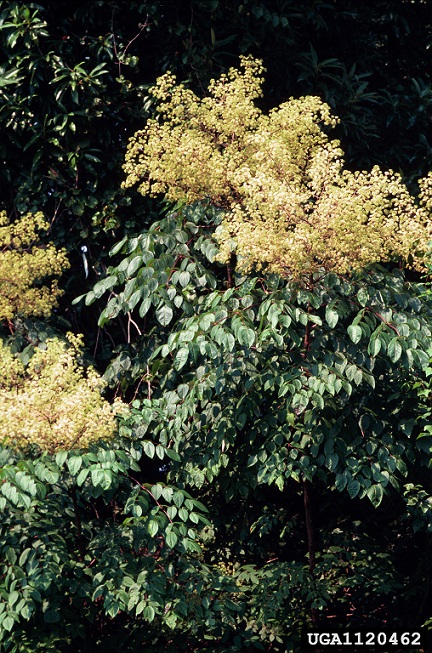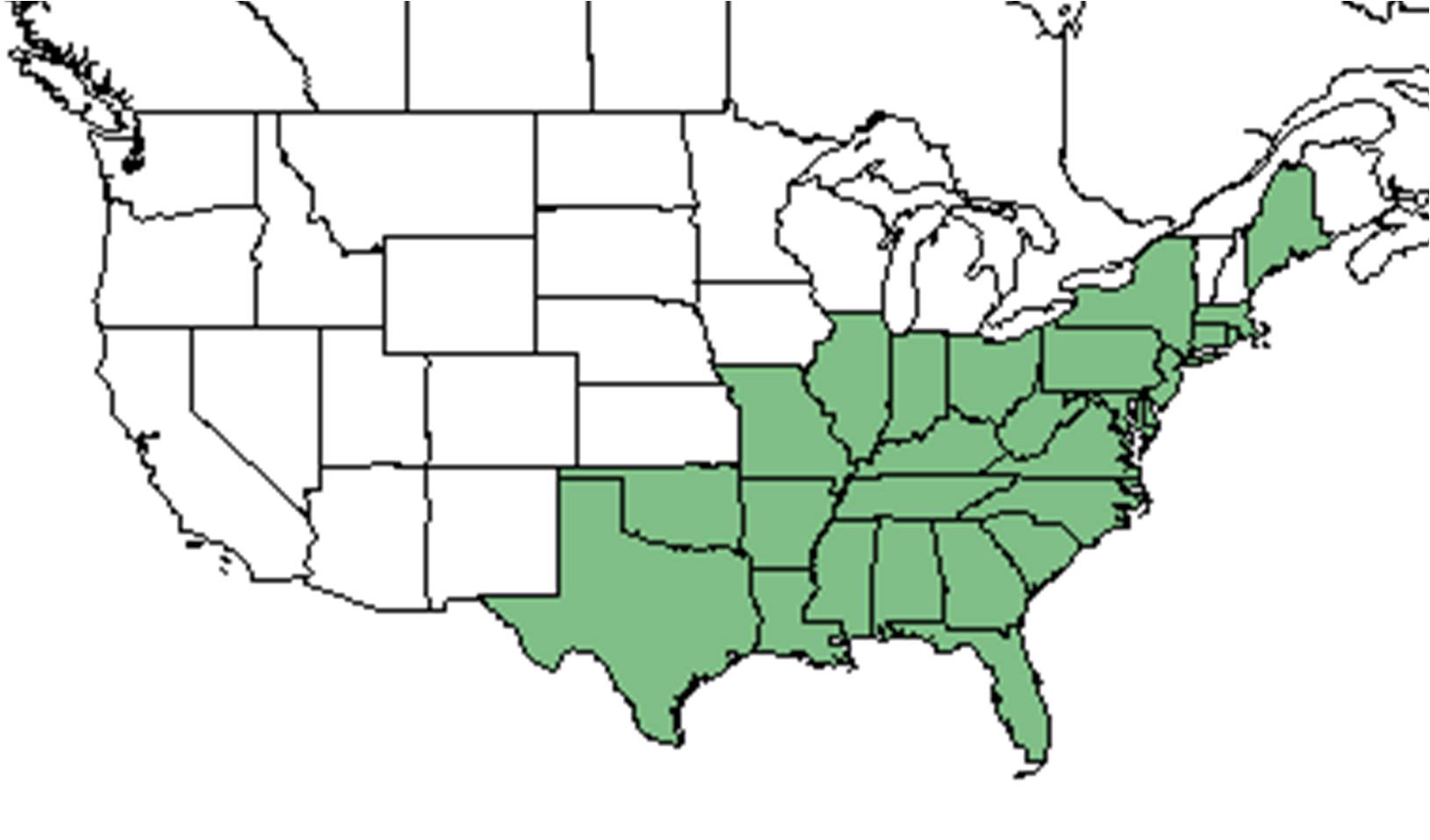Difference between revisions of "Aralia spinosa"
Krobertson (talk | contribs) (→Cultivation and restoration) |
Krobertson (talk | contribs) (→Photo Gallery) |
||
| Line 60: | Line 60: | ||
<!--==Cultivation and restoration==--> | <!--==Cultivation and restoration==--> | ||
| − | ==Photo Gallery== | + | <!--==Photo Gallery==--> |
<gallery widths=180px> | <gallery widths=180px> | ||
</gallery> | </gallery> | ||
Revision as of 14:29, 18 May 2016
| Aralia spinosa | |
|---|---|

| |
| Photo by James H. Miller & Ted Bodner, Southern Weed Science Society, Bugwood.org | |
| Scientific classification | |
| Kingdom: | Plantae |
| Division: | Magnoliophyta - Flowering plants |
| Class: | Magnoliopsida - Dicotyledons |
| Order: | Apiales |
| Family: | Araliaceae |
| Genus: | Aralia |
| Species: | A. spinosa |
| Binomial name | |
| Aralia spinosa L. | |

| |
| Natural range of Aralia spinosa from USDA NRCS Plants Database. | |
Common names: Devil's Walking Stick, Hercules’s-club, Prickly-ash
Contents
Description
Perennial shrub or small tree, can grow up to 8ft tall. Has very coarse prickly stems and leaves, and can be alternate or solitary, petiolate. The leaves are decompound. The leaflets are elliptic or ovate, and an grow up to 13cm long and 7cm wide, they’re glabrous or glabrate, acute to caudate, serrate, base oblique, rounded, or cuneate, petiolulate. The racemes and panicles are umbels in structure. The panicle terminal is large with main branches grow up to 6dm long, all branches and pedicels are pubescent. There are numerous flower, pedicels are 5-10mm long. The flowers are greenish to white. There are 5 stigmas that are capitate. There are 5 styles that are fused basally or completely separate. The sepals are 0.4-0.6mm long. The petals are white, 2-3mm long. The styles are fused, ca. 0.5 mm, separate and recurved, ca. 1mm. The drupes are purple or black in color and are 4-6mm in diameter. The pyrenes are 3-4.5mm long. Flowers from June to September. (Radford 1964).
Distribution
It is found as north as New Jersey, west to Illinois, and south to Florida, and then west towards eastern Texas (Weakley 2015).
Ecology
Habitat
It is found in disturbed pocosins, bottomlands, disturbed areas, and in moist to dry forests and woodland habitats (Weakley 2015).
Phenology
It flowers from June to September (Weakley 2015).
Pollination
The following Hymenoptera families and species were observed visiting flowers of Aralia spinosa at Archbold Biological Station (Deyrup 2015):
Apidae: Epeolus zonatus
Colletidae: Colletes mandibularis, Hylaeus confluens
Halictidae: Augochlora pura
Leucospididae: Leucospis robertsoni, L. slossonae
Megachilidae: Coelioxys dolichos, C. sayi, C. texana, Megachile mendica, M. xylocopoides
Sphecidae: Cerceris flavofasciata floridensis, Cerceris rufopicta, Ectemnius decemmaculatus tequesta, Ectemnius maculosus, E. rufipes ais
Vespidae: Euodynerus megaera, Parancistrocerus perennis anacardivora, Zethus spinipes
References and notes
Deyrup, M.A. 2015. Database of observations of Hymenoptera visitations to flowers of plants on Archbold Biological Station, Florida, USA.
Radford, Albert E., Harry E. Ahles, and C. Ritchie Bell. Manual of the Vascular Flora of the Carolinas. 1964, 1968. The University of North Carolina Press. 760. Print.
Weakley, Alan S. Flora of the Southern and Mid-Atlantic States: Working Draft of 21 May 2015. University of North Carolina Herbarium (NCU). PDF. 1219.